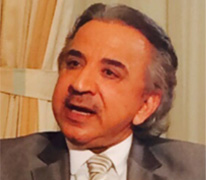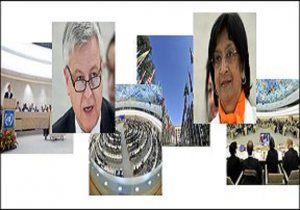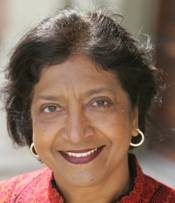About UN HRC
UNITED NATIONS HUMAN RIGHTS COUNCIL (UN HRC)
Background information on the Human Rights Council
The Human Rights Council is an inter-governmental body within the United Nations system responsible for strengthening the promotion and protection of human rights around the globe and for addressing situations of human rights violations and make recommendations on them. It has the ability to discuss all thematic human rights issues and situations that require its attention throughout the year. It meets at the UN Office at Geneva.
The Council is made up of 47 United Nations Member States which are elected by the UN General Assembly. The Human Rights Council replaced the former United Nations Commission on Human Rights.
Creation
The Council was created by the United Nations General Assembly on 15 March 2006 by resolution 60/251. Its first session took place from 19 to 30 June 2006. One year later, the Council adopted its "Institution-building package" to guide its work and set up its procedures and mechanisms.
Among them were the Universal Periodic Review mechanism which serves to assess the human rights situations in all United Nations Member States, the Advisory Committee which serves as the Council’s “think tank” providing it with expertise and advice on thematic human rights issues and the Complaint Procedure which allows individuals and organizations to bring human rights violations to the attention of the Council.
The Human Rights Council also works with the UN Special Procedures established by the former Commission on Human Rights and now assumed by the Council. These are made up of special rapporteur, special representatives, independent experts and working groups that monitor, examine, advise and publicly report on thematic issues or human rights situations in specific countries.
Review of the Council
When creating the Human Rights Council in March 2006 the United Nations General Assembly decided that the Council’s work and functioning should be reviewed five years after it had come into existence at the level of the General Assembly. More information about the review and its 2011 outcome are available at HRC website.
Human Rights Bodies
The Office of the High Commissioner for Human Rights (OHCHR) works to offer the best expertise and support to the different human rights monitoring mechanisms in the United Nations system : UN Charter-based bodies, including the Human Rights Council, and bodies created under the international human rights treaties and made up of independent experts mandated to monitor State parties' compliance with their treaty obligations. Most of these bodies receive secretariat support from the Human Rights Council and Treaties Division of the Office of the High Commissioner for Human Rights (OHCHR).
Charter-based bodies
- Human Rights Council
- Universal Periodic Review
- Commission on Human Rights (replaced by the Human Rights Council)
- Special Procedures of the Human Rights Council
- Human Rights Council Complaint Procedure
- Human Rights Committee (CCPR)
- Committee on Economic, Social and Cultural Rights (CESCR)
- Committee on the Elimination of Racial Discrimination (CERD)
- Committee on the Elimination of Discrimination against Women (CEDAW)
- Committee against Torture (CAT)
- Subcommittee on Prevention of Torture (SPT)
- Committee on the Rights of the Child (CRC)
- Committee on Migrant Workers (CMW)
- Committee on the Rights of Persons with Disabilities (CRPD)
- Committee on Enforced Disappearances (CED)
******************************************************
HRC Sessions
The Human Rights Council holds no fewer than three regular sessions a year, for a total of at least ten weeks. They take place in March (four weeks), June (three weeks) and September (three weeks). If one third of the Member States requests so, the Human Rights Council can decide at any time to hold a special session to address human rights violations and emergencies.Regular sessions
1st Regular Session (18-06-2006 to 30-06-2006) 2nd Regular Session (18-09-2006 to 29-11-2006) 3rd Regular Session (29-11-2006 to 08-12-2006) 4th Regular Session (12-03-2007 to 30-03-2007) 5th Regular Session (11-06-2007 to 18-06-2007) 6th Regular Session (10-09-2007 to 28-09-2007) 7th Regular Session (03-03-2008 to 28-03-2008) 8th Regular Session (02-06-2008 to 18-06-2008) 9th Regular Session (08-09-2008 to 26-09-2008) 10th Regular Session (02-03-2009 to 27-03-2009) 11th Regular Session (02-06-2009 to 18-06-2009) 12th Regular Session (14-09-2009 to 02-10-2009) 13th Regular Session (01-03-2010 to 26-03-2010) 14th Regular Session (31-05-2010 to 18-06 -2010) 15th Regular Session (13-09-2010 to 10-10 -2010) 16th Regular Session (28-02-2011to 25-03 -2011) 17th Regular Session (30-05-2011to 17-06 -2011) 18th Regular Session (12-09-2011to 30-09 -2011) 19th Regular Session (27-02-2012to 23-03 -2012) 20th Regular Session (18-06-2012to 06-07 -2012) 21th Regular Session (10-09-2012to 28-09 -2012) 22nd Regular Session (25-02-2013 to 22-03-2013) 23rd Regular Session (27-05-2013 to 14-06-2013) 24th Regular Session ( 09-09-2013 to 27-09-2013) 25th Regular Session (03-03-2014 to 28-09-2013 )UPR Sessions
According to the Human Rights Council’s “institution-building package”, the Universal Periodic Review Working Group will hold three two-week sessions per year. During each session 16 countries will be reviewed, therefore 48 countries per year and 192 countries by 2011, or the entire UN membership over the course of the first UPR cycle (2008-2011). On 21 September 2007, the Human Rights Council adopted a calendar detailing the order in which the 192 UN Member States will be considered during the first four-year cycle. Each review is facilitated by groups of three States, or “troikas”, who act as Rapporteur. The following is the list of sessions scheduled for the 1st four-year cycle, including the list of countries being reviewed during the session, as well as the timetables for each two-week session and the list of “troikas” for each review, where available. (Please note: The order of review, timetables and list of troikas are only determined shortly before the respective sessions. All documents below are available in Pdf format)- 1st session 7-18 April 2008 (order of review / timetable / list of troikas)
- 2nd session 5-16 May 2008 (order of review / timetable / list of troikas)
- 3rd session 1-15 December 2008 (order of review / timetable / list of troikas)
- 4th session 2-13 February 2009 (order or review / timetable / list of troikas)
- 5th session 4-15 May 2009 (order of review / timetable / list of troikas)
- 6th session 30 November-11 December 2009 (order of review / timetable)
- 7th session (8-19 February 2010) (order of review / timetable / list of troikas)
- 8th session (3-14 May 2010) (order of review / timetable / list of troikas)
- 9th session (1-12 November 2010) (order of review / timetable / list of troikas)
- 10th session (24 January-4 February 2011) (timetable / list of troikas)
- 11th session (2-13 May 2011) (order of review / timetable / list of troikas)
- 12th session (3-14 October 2011) (order of review / timetable / list of troikas)
- 13th session (21 May-4 June 2012) (timetable / list of troikas)
- 14th session (22 October-5 November 2012) (timetable / list of troikas)
- 15th session (21 January-1 February 2013) (timetable / list of troikas)
- 16th session (22 April-3 May 2013) (timetable / list of troikas)
- 17th session (21 October-1 November 2013) (timetable / list of troikas)
- 18th session (27 January - 7 February 2014) (timetable / list of troikas)



